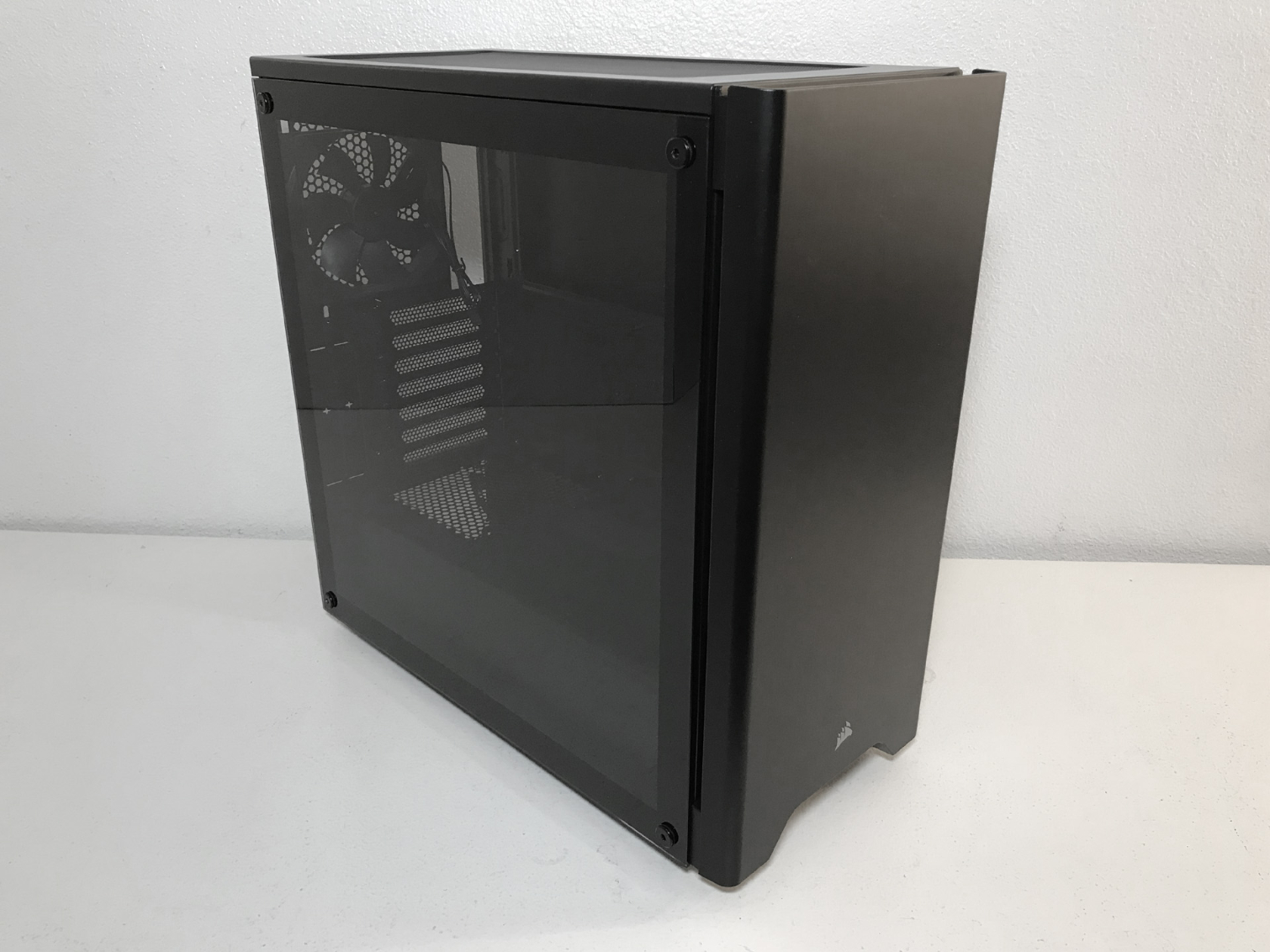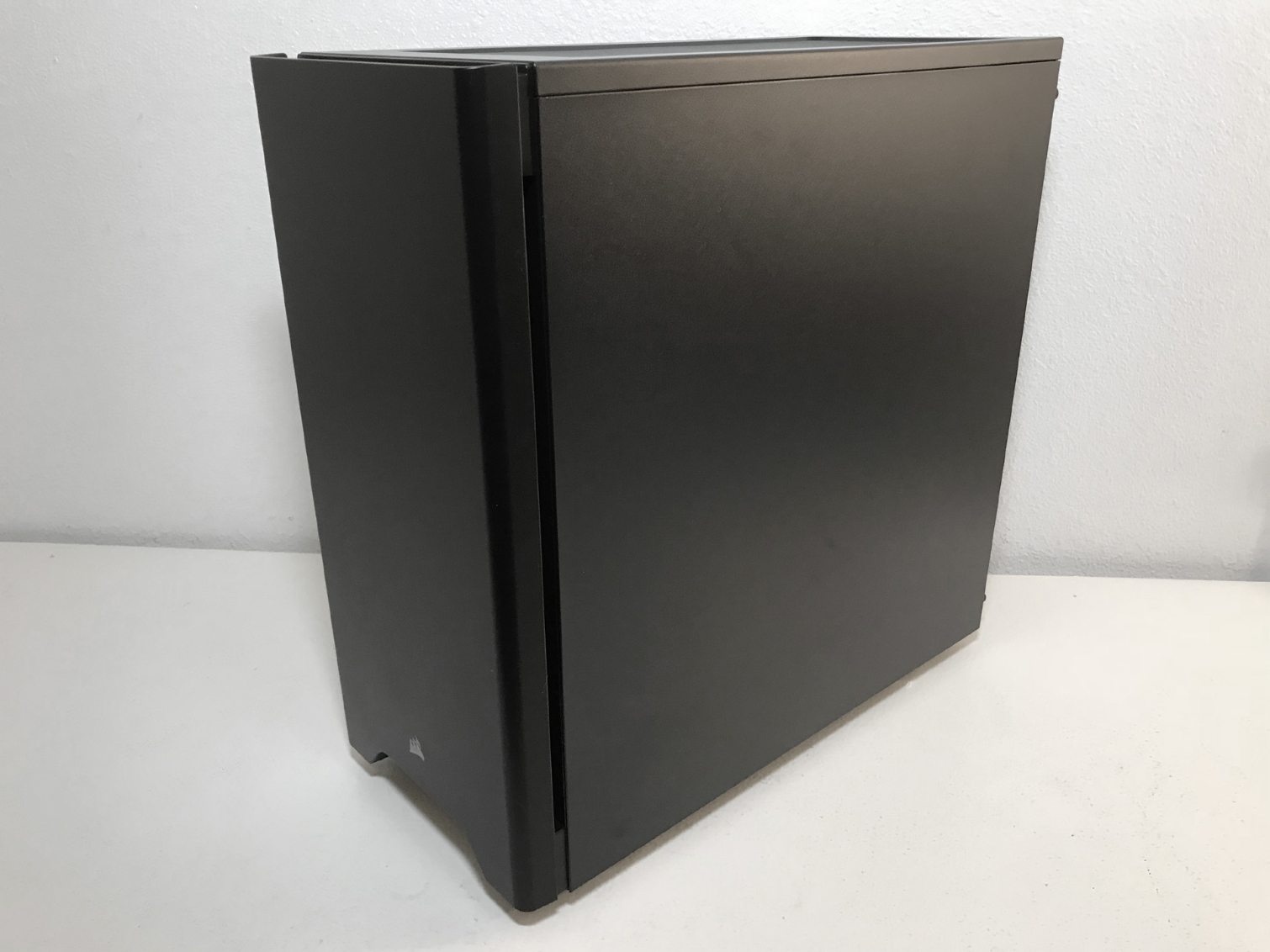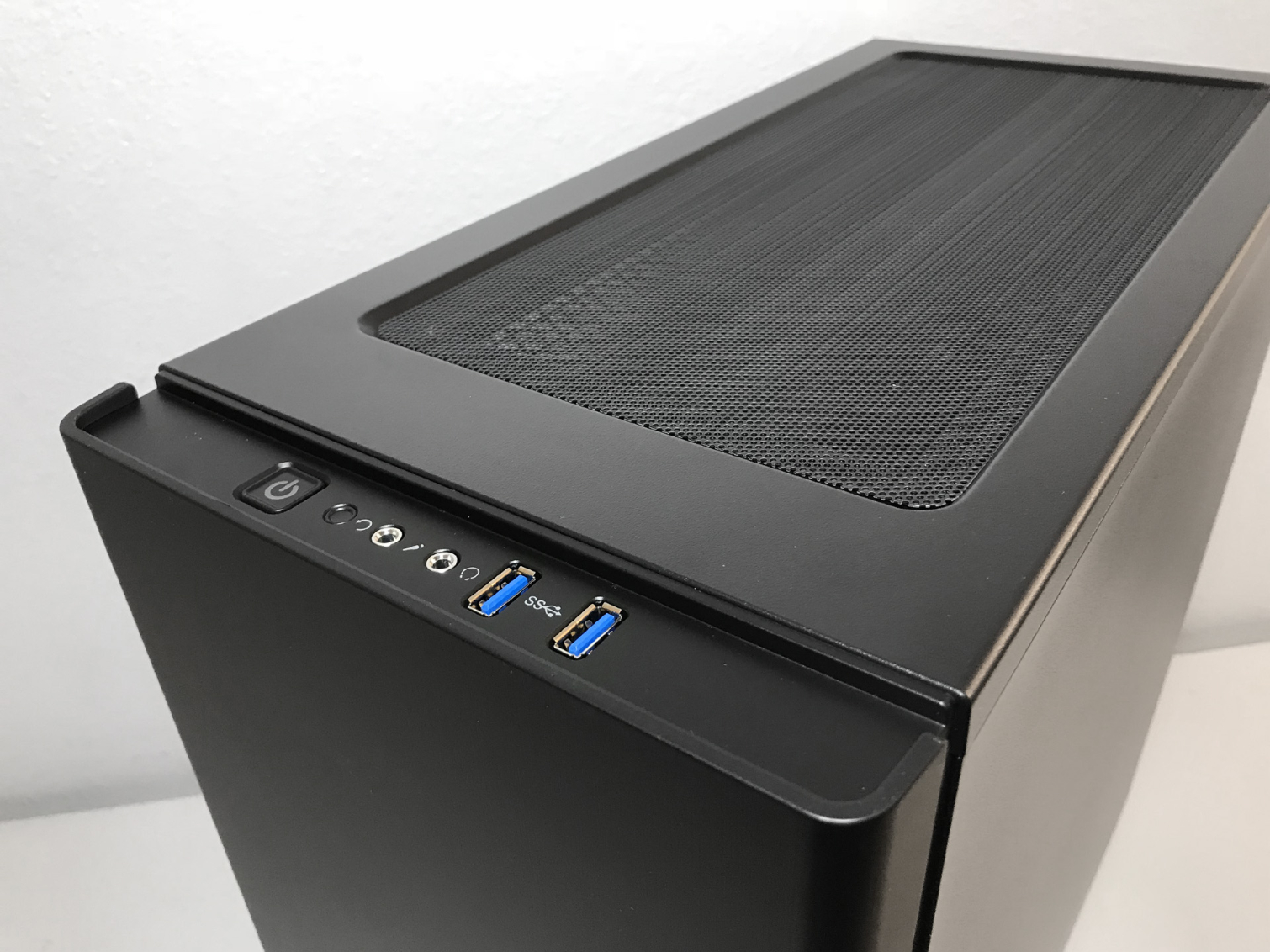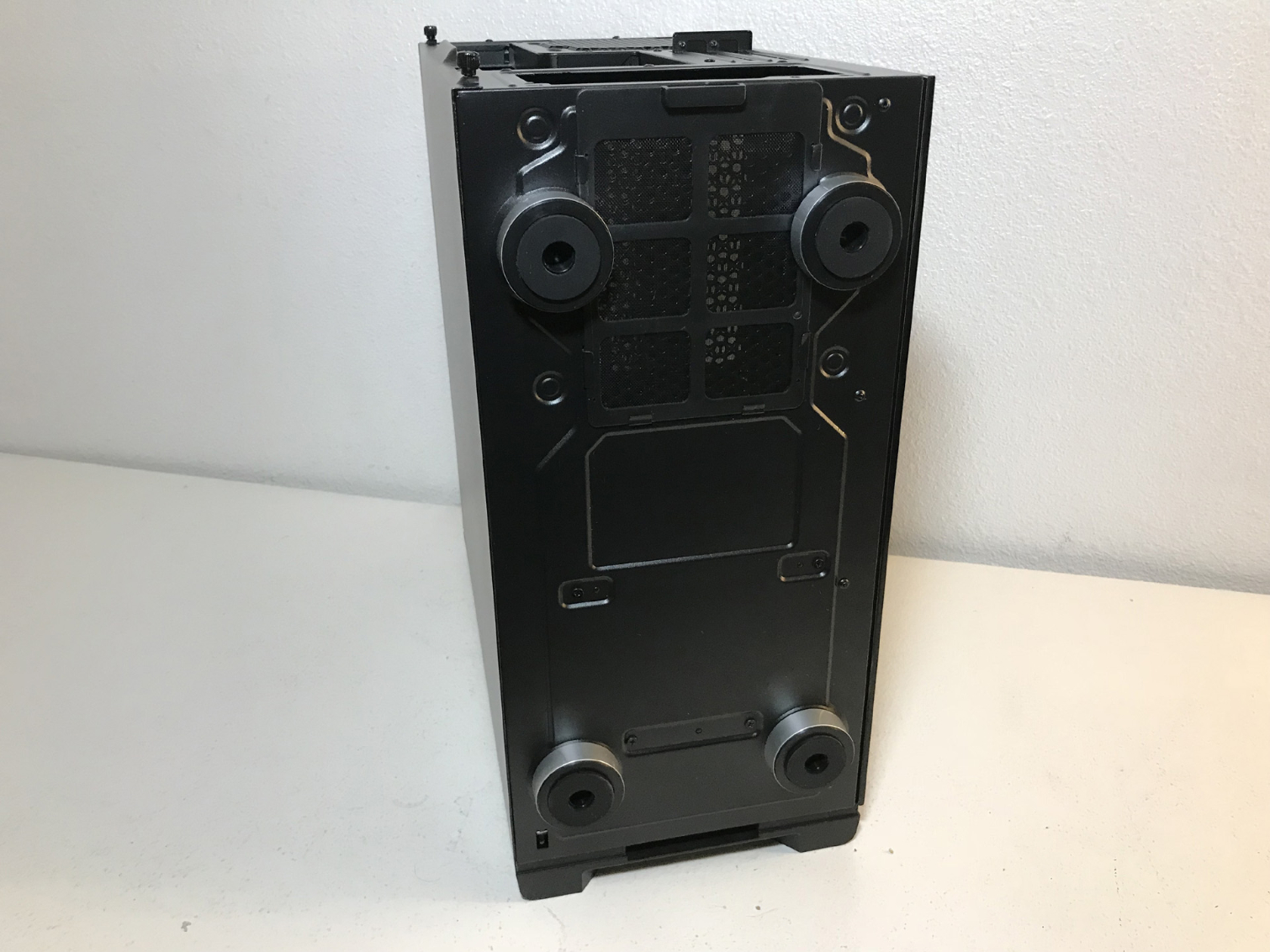Early Verdict
The 275R is a decent no-frills chassis with a glass side panel, and is priced accordingly. However, we've tested better-performing choices in this price class. Another intake fan (or a slight price drop from the $79.99 launch price) would make it a better value.
Pros
- +
Price
- +
Phenomenal water-cooling support
- +
Acoustic performance
- +
Tempered-glass side panel
- +
Builder-friendly
Cons
- -
Thermal performance
- -
Punch-out vertical GPU slot covers
Why you can trust Tom's Hardware
Features & Specifications
If you're a PC builder, you've likely seen the Corsair Carbide series before, as well as PC-case designs inspired by it. A new addition to this budget-friendly line, the Carbide 275R tempered-glass chassis features a clean, minimalist design with a builder-friendly internal layout. If Corsair's recently launched Obsidian 550D premium chassis is a bit too extravagant for you, the compact mid-tower Carbide 275R may be just what you are looking for.
The first thing you will notice about the Corsair Carbide 275R is the chassis' overall basic-black demeanor. If you were to place it next to other mid-tower chassis with a tempered-glass side panel such as the Riotoro CR500, the Fractal Design Define R6, and the Antec P110 Luce, you would be hard-pressed to tell them apart. But, before we get ahead of ourselves, let's look at this chassis' tech specs.
Constructed of steel, plastic, and tempered glass, the Carbide 275R is painted black inside and out, measures 455 x 225 x 460mm (HWD), and tips the scales at 16lbs. Most of the top panel is covered by a magnetic metal-mesh filter. Directly under the filter is a perforated area that has mounting locations for two 120mm or 140mm fans.
The tinted-glass side panel measures 419 x 419mm, and it is held in place by rubber-coated locating pins and Allen-head screws. The steel panel on the opposite side of the chassis is plain and secured with captive thumbscrews.
The plastic front panel is covered by a thin brushed-aluminum skin. Two USB 3.0 ports, headphone and microphone jacks, a hard drive activity LED, and a power button are located in the uppermost edge of the front panel. Behind the plastic is a large removable nylon mesh filter covering mounting locations for three 120mm or two 140mm fans. A 10mm gap on either side of the front panel allows air to pass into the chassis through the front filter that covers the fan-mounting locations. The front panel is easy to remove by grabbing the lower edge and pulling out and away from the chassis.
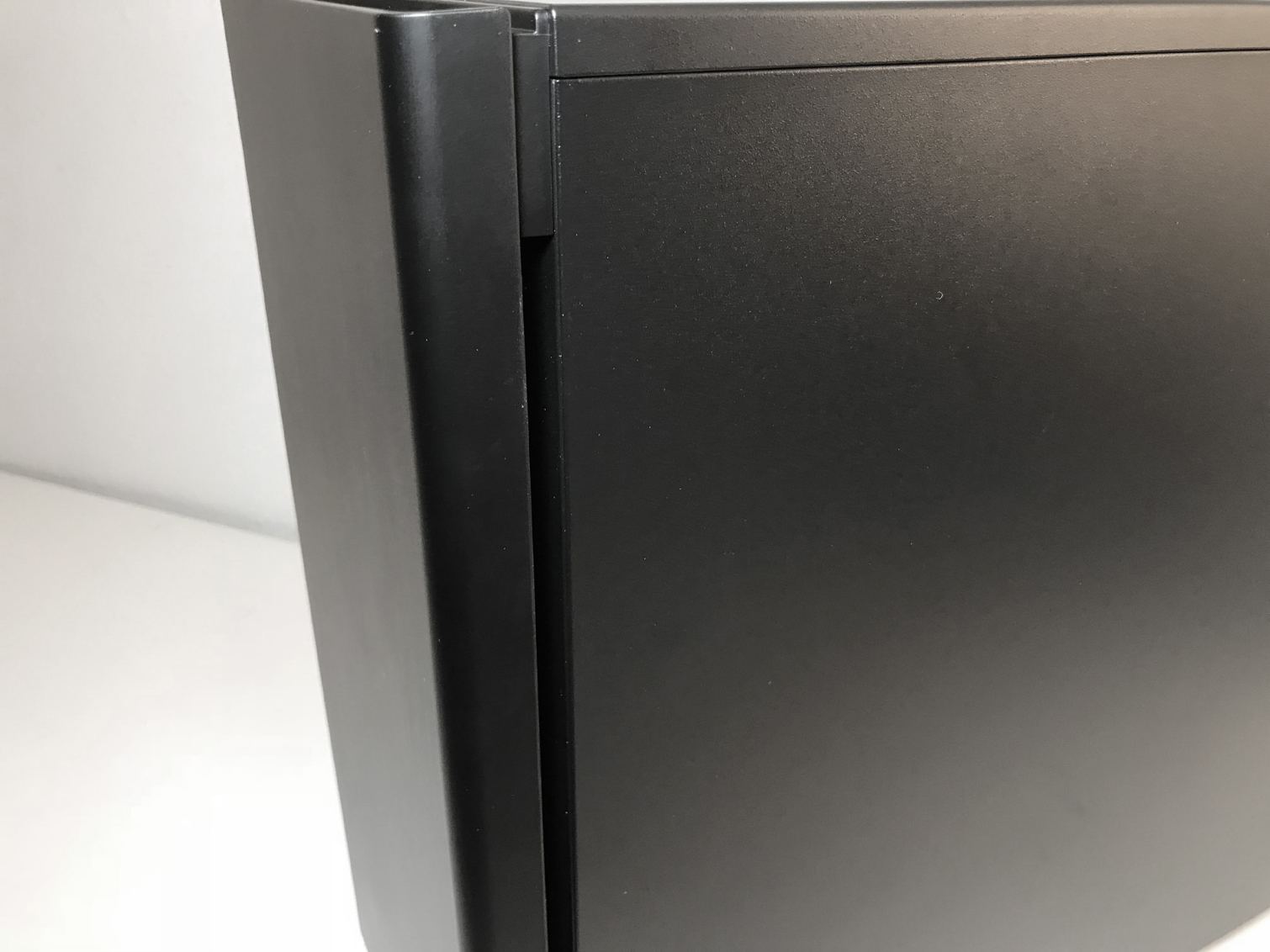
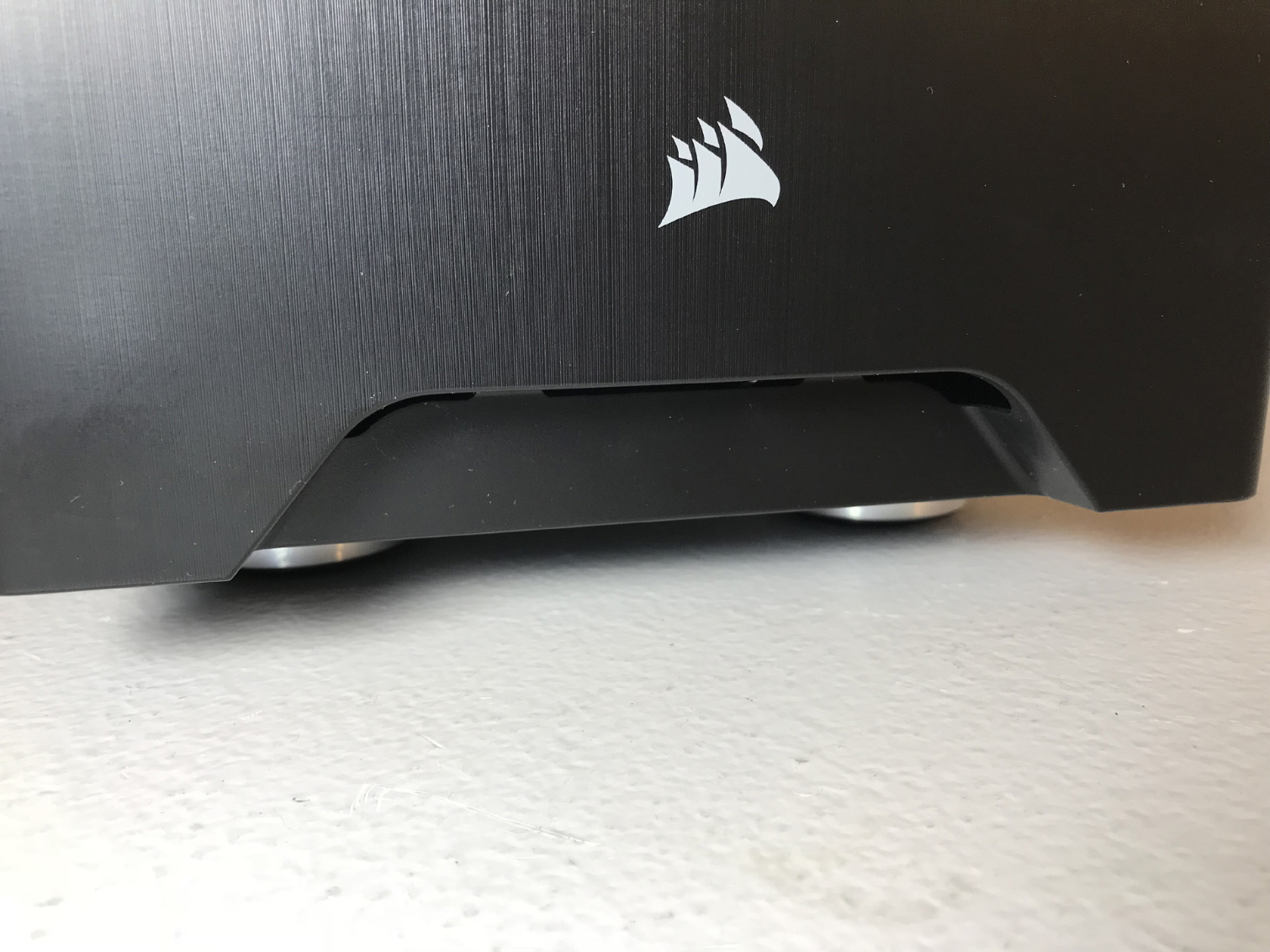
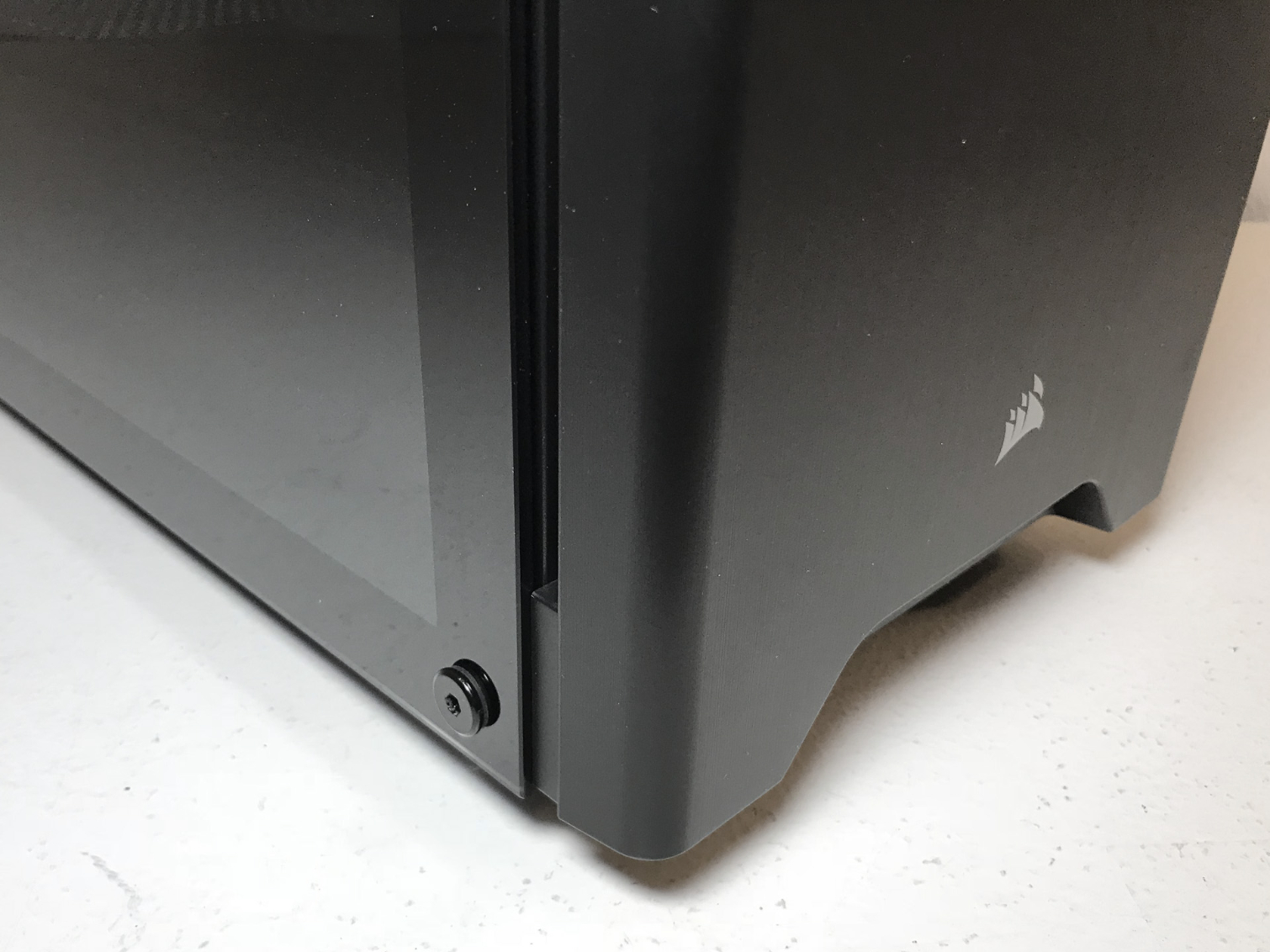
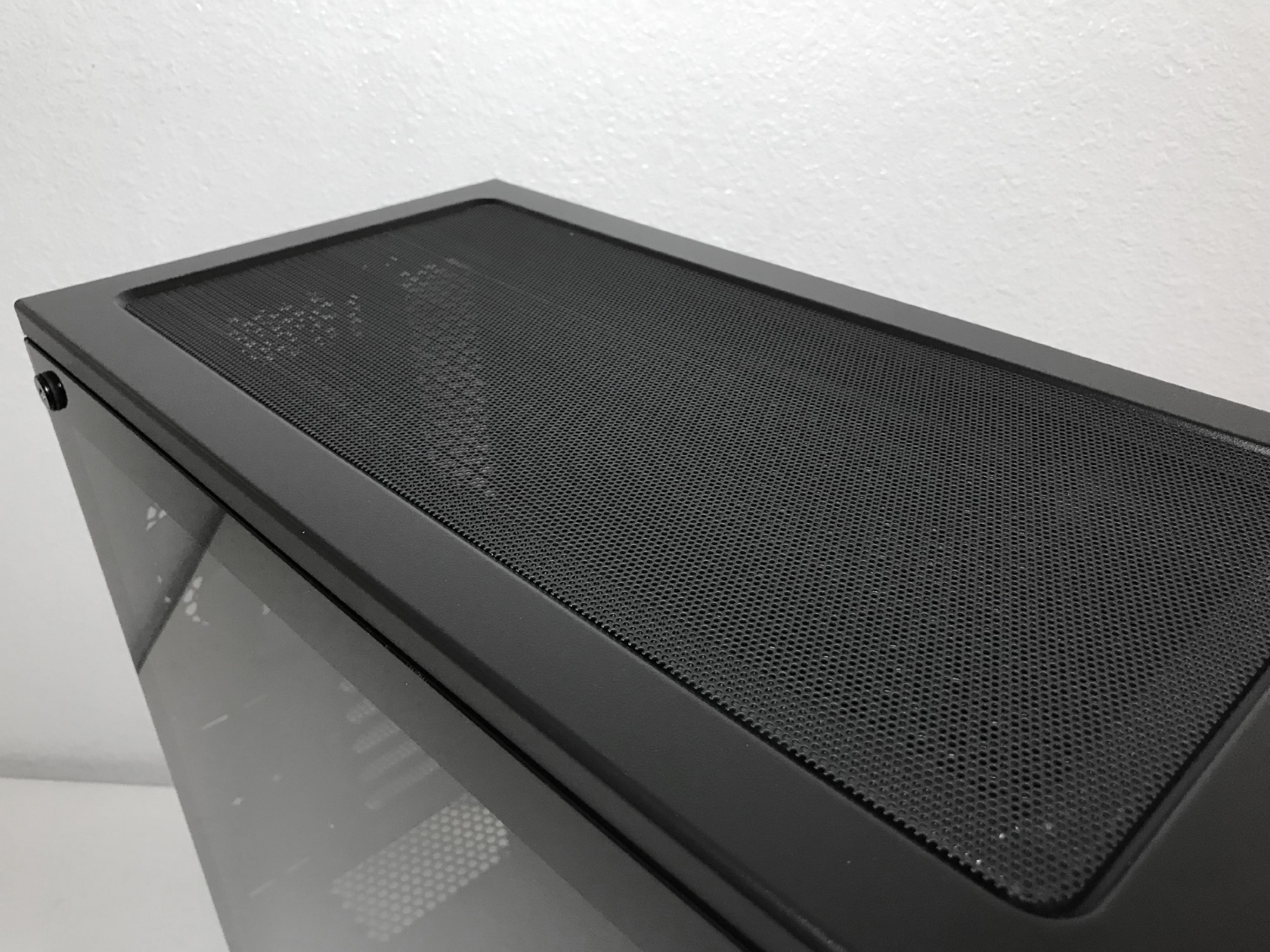
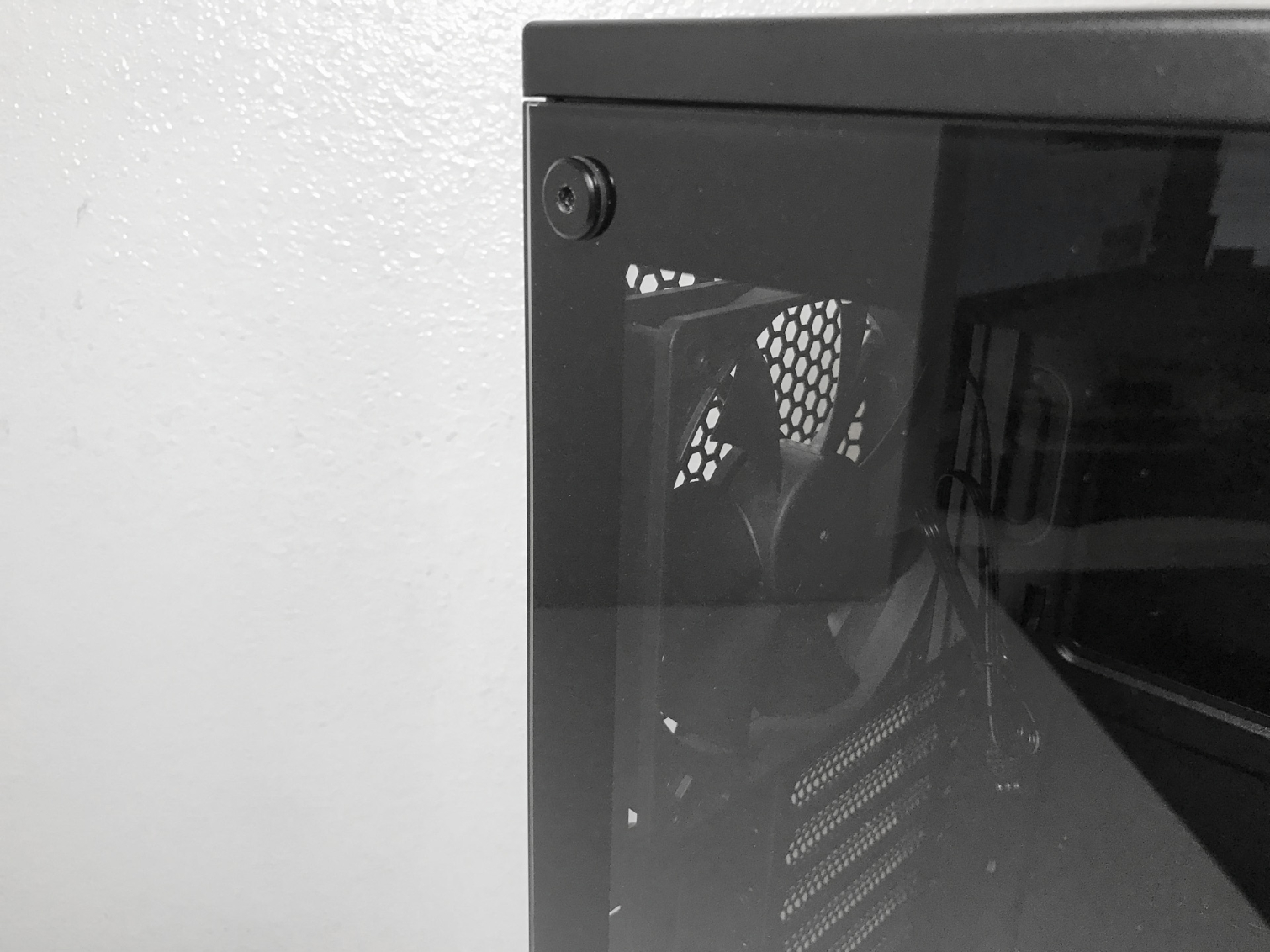
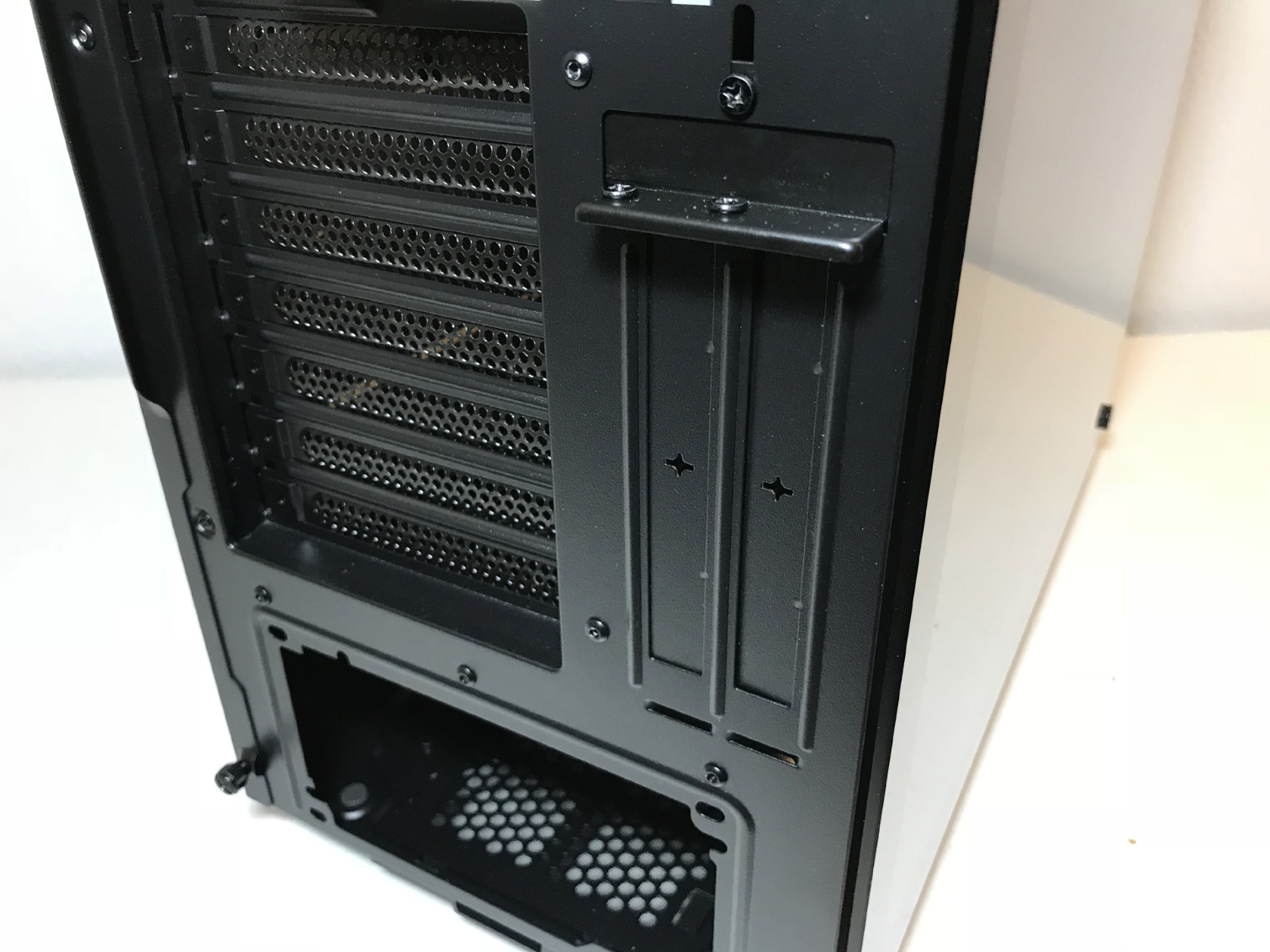
The rear of the chassis is pretty standard fare for an ATX mid-tower. The motherboard I/O area sits directly over the chassis' seven (and two vertical) expansion slots. There is an opening for a bottom-mounted PSU, as well as an exhaust-fan mounting location outfitted with a 120mm fan. That location features slotted screw holes that let you adjust the position of the fan to fine-tune airflow or make room for system components.
The bottom of the case has a filtered hole for power-supply ventilation and four round plastic feet. The four large rubber-coated feet keep the case approximately a half inch off the ground. The removable 6" nylon power-supply filter must be removed from the rear for maintenance and cleaning.
Get Tom's Hardware's best news and in-depth reviews, straight to your inbox.
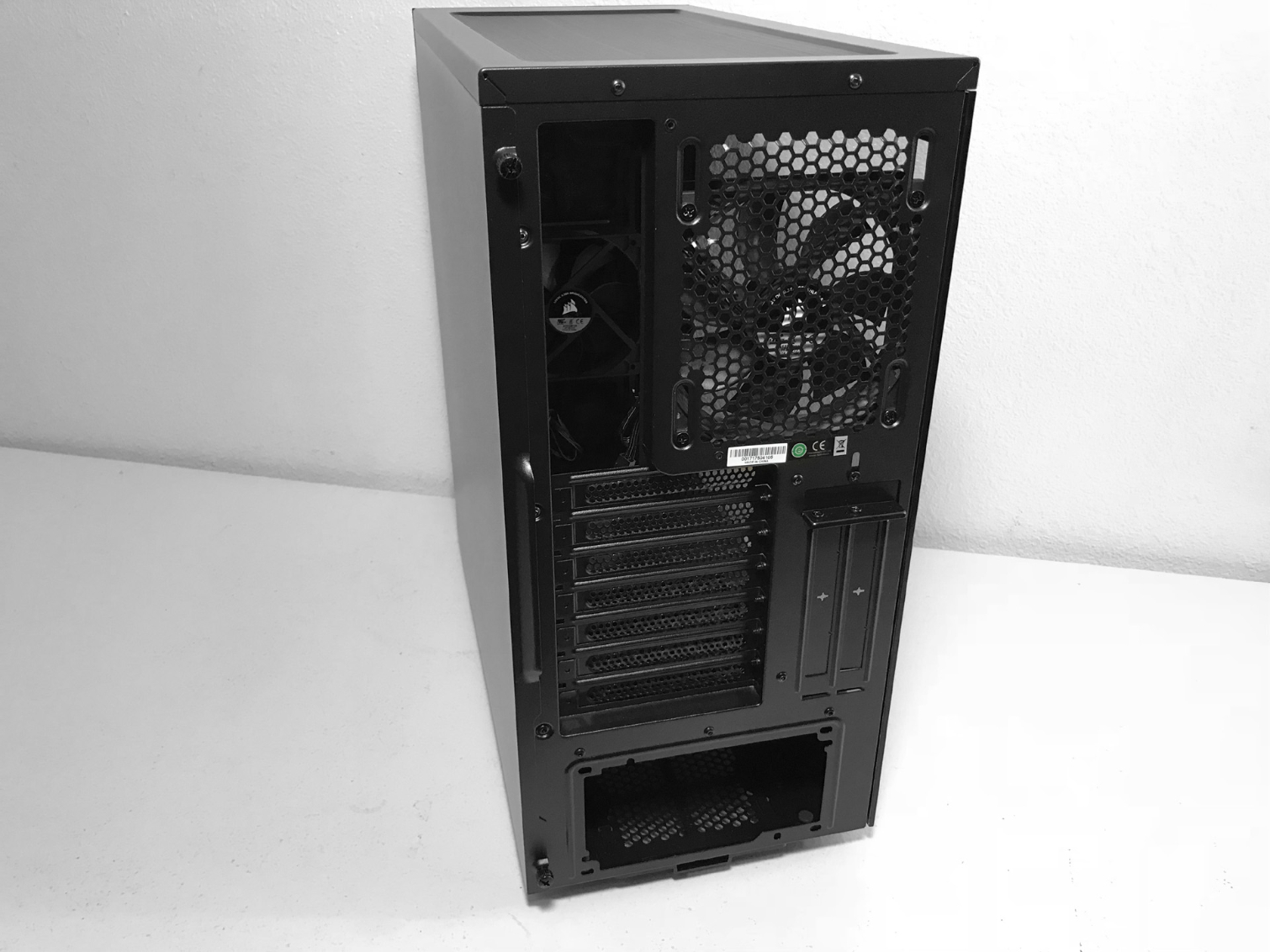
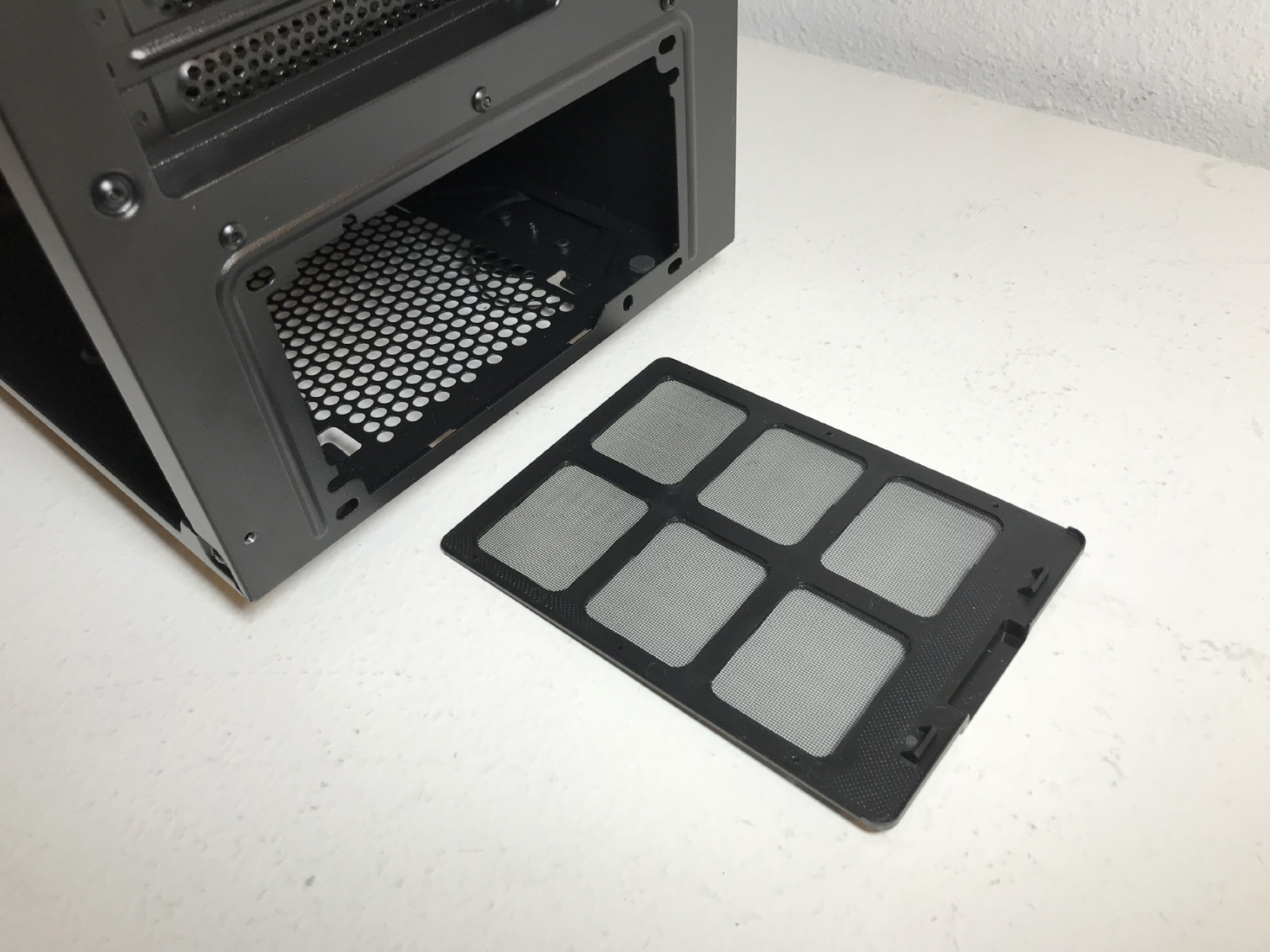
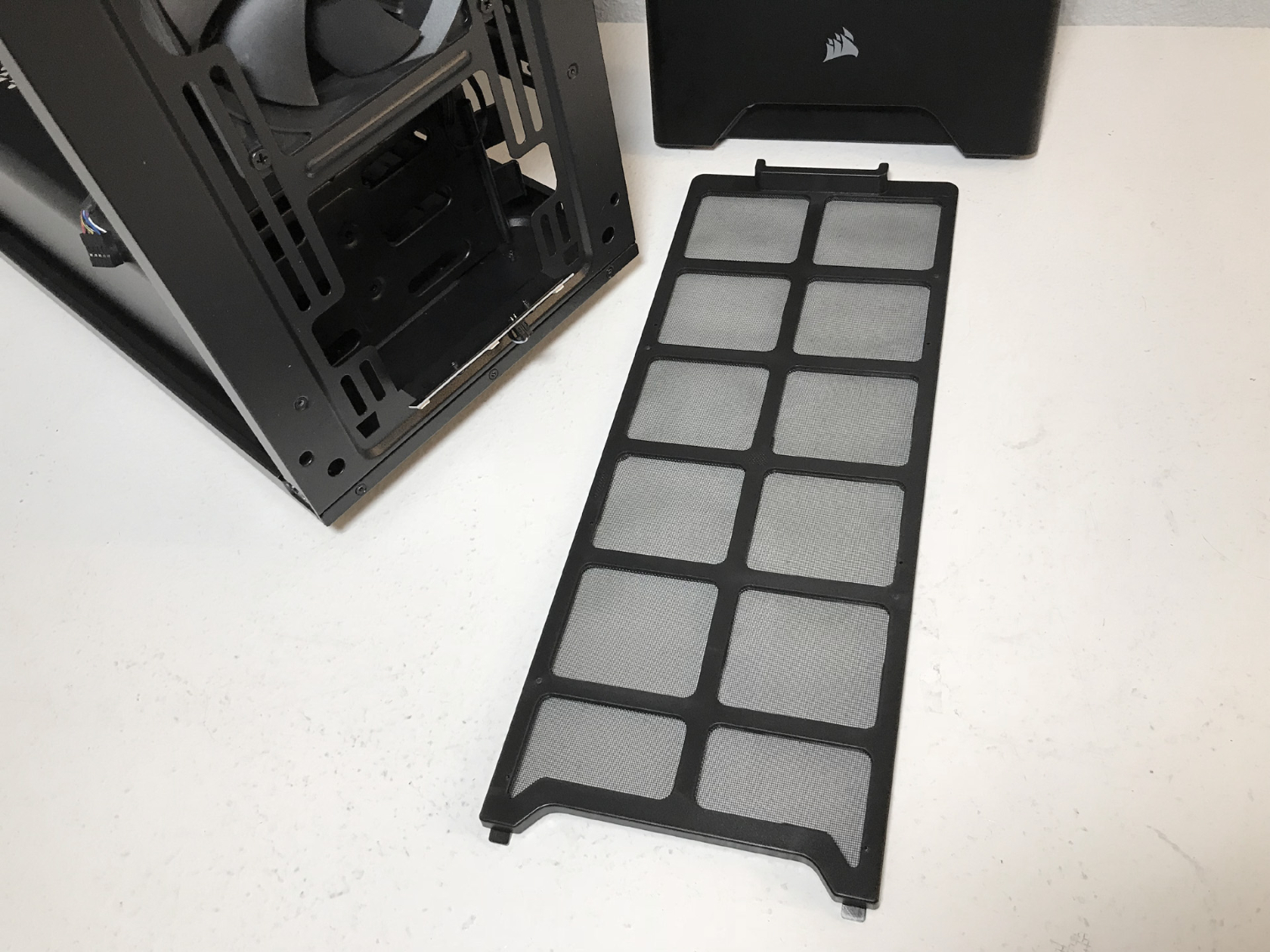
The fan filtration system on the Carbide 275R is fairly robust in terms of its ability to prevent most dirt and dust particles from entering your system. As mentioned earlier, the metal mesh filter on the top of the case is attached by magnetic seals at the edge of the filter. The large plastic filter in the front of the chassis also attaches to the frame via magnets. The plastic filter covering the PSU mounting location slides in and out from the rear of the case. Considering the rear filter measures just 6" long, servicing this filter shouldn't be an issue.
MORE: Best Cases
MORE: All Case Content
Steven Lynch is a contributor for Tom’s Hardware, primarily covering case reviews and news.
-
WyomingKnott If I read this correctly, and the specs on the site, it has room for zero external bays?Reply
Great for some builders, but I'm old-fashioned with a DVD drive. And two external HDD bays for my backups.
Yes, I know I could get a USB 3.0 DVD burner (I have one for notebooks) and do backups to a NAS on my network, but I'm not there yet. Just a personal comment, don't mean that this case isn't great for some people - like those with cleaner cable-routing skills than I. -
takeshi7 I just want Corsair to release an updated 450D with an optional tempered glass side panel and a PSU shroud. Is that so much to ask for?Reply -
Sedivy I wish these reviews always included additional temperature measurement when all fan slots are populated. Otherwise it's hard to compare potential cooling efficiency unless cases come with exact same number of fans. To even out the fan differences a little, could set them all to 1000rpm with no temp response.Reply
